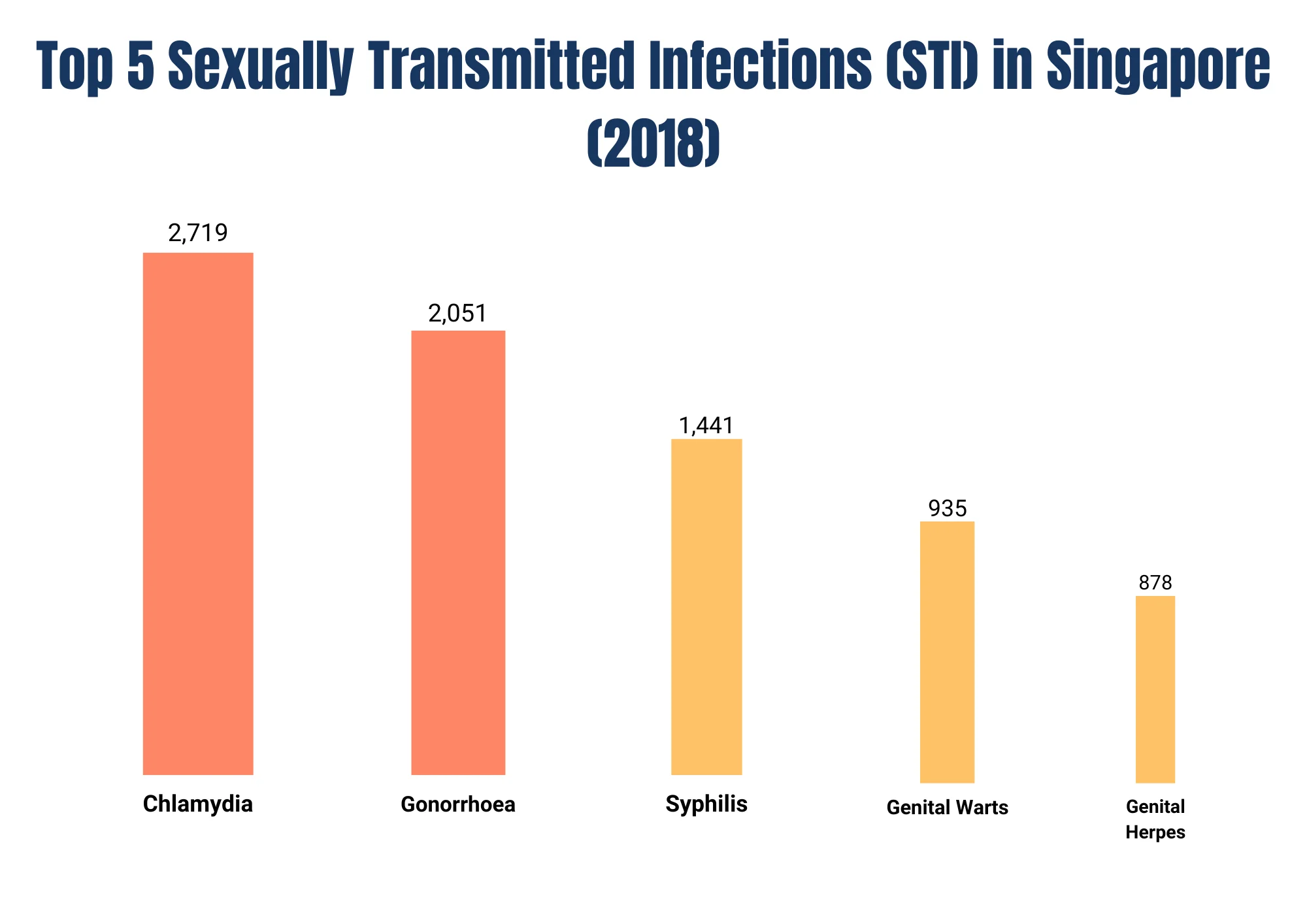How to Test for STDs in the Throat?
Last updated: Dec 20, 2025
A throat swab is used to identify certain sexually transmitted infections
(STIs), particularly chlamydia
and gonorrhoea. These
infections can be transmitted through oral sex.
As they were among the most common STIs in Singapore in 2018, regular testing
is recommended for sexually active individuals.


Potential Symptoms
While oral STIs often present with no symptoms, some possible signs include a sore throat, swollen lymph nodes in the neck, fever and difficulty swallowing. However, it's important to note that these symptoms can also be caused by other health conditions, so it is important to seek medical advice from a doctor.

Common Testing Procedure
The procedure for a throat swab test is quick and minimally invasive. Here's what to expect:
- Preparation: You'll sit comfortably and tilt your head back slightly.
- Swab Collection: A doctor will gently insert a soft, sterile swab into the back of your throat. They will rub the swab against your tonsils and the back wall of your throat to collect a sample. The process may cause mild discomfort or a brief gag reflex, but it's generally well-tolerated.
- Sample Handling: The swab is then placed in a sterile container and sent to a laboratory for analysis.

Type of Tests
The main method for analysing throat swab samples is polymerase chain reaction (PCR) testing, which is highly accurate in detecting chlamydia and gonorrhoea, even in small amounts. Results are usually available within one to three days. However, throat swab tests are not always included in standard STD screenings, so remember to check with the clinic for availability.

Who Should Get Tested
It is advisable for sexually active individuals to undergo regular testing, particularly if they have multiple partners or participate in unprotected oral sex. Even in the absence of symptoms, periodic testing is important because throat STDs can show no signs but still be passed on to sexual partners.

Summary
Throat swab testing is a vital tool in the detection and management of STIs in the throat. By understanding the testing procedure and importance of regular testing, you can take proactive steps to maintain your sexual health by ensuring early detection and treatment. Regular screening, even in the absence of symptoms, is crucial for sexually active individuals to prevent potential spread of STIs. If you are unsure of which testing option is best for you, consult a doctor today to discuss more.
Why Choose ATA Medical?








Delivering Care Patients Appreciate
What to Expect
FAST RESULTS
We strive to deliver your results within 7 working days.
MINIMUM WAITING TIME
Our patient-oriented processes ensure your waiting time is kept to a minimum.
Friendly Service
Service is a top priority for us at ATA Medical.
Email Us at camden@atamed.sg for more
information.
Book your STD screening with us at 88838892


